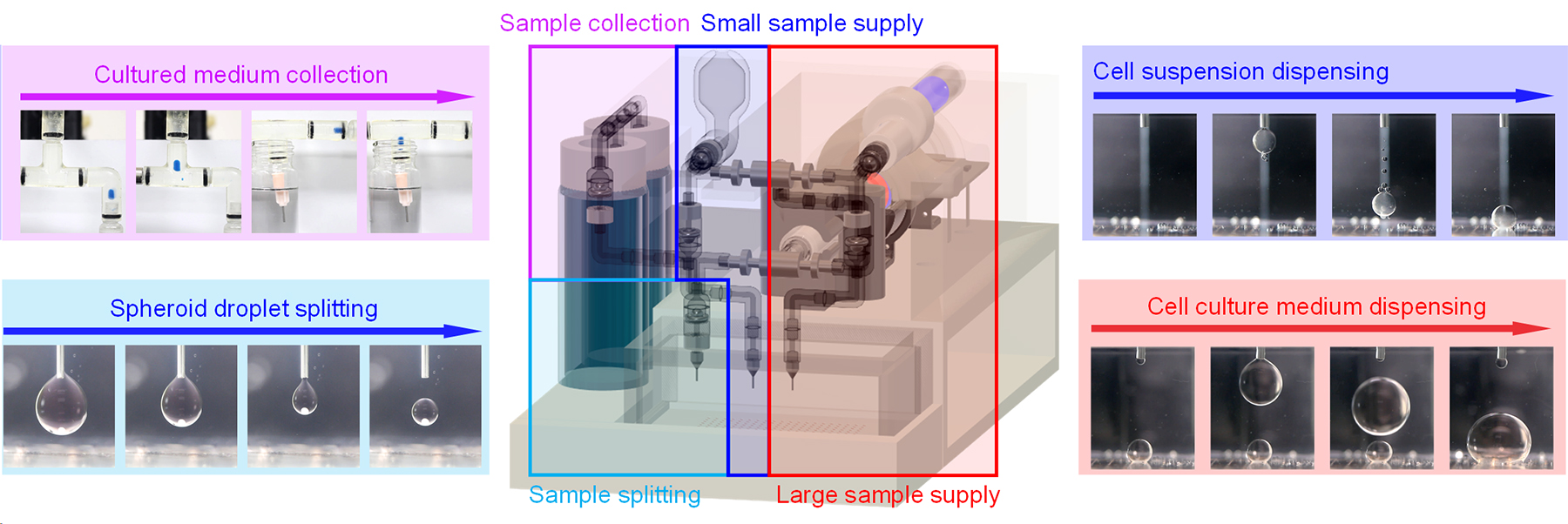연구/산학
PKNU Research 1000
| Lim Do-jin | Dispensing System Published in a Top Global Journal | |||
| 작성자 | 대외협력과 | 작성일 | 2024-10-25 |
| 조회수 | 87 | ||
| Lim Do-jin | Dispensing System Published in a Top Global Journal | |||||
 |
대외협력과 |  |
2024-10-25 |  |
87 |
Dispensing System Developed by Pukyong National University Professor’s Team Published in a Top Global Journal
- Professor Lim Do-jin’s Research Team … Published a Paper in <Sensors and Actuators B: Chemical>

A study on a novel dispensing system by Professor Lim Do-jin’s (Department of Chemical Engineering) research team at Pukyong National University has been published in a top global journal.
A paper titled ‘Syringe pump-embedded, on-demand sample supply and collection system for droplet 3D cell culture in digital microfluidics,’ covering research on the independently developed solenoid pump-based sample supply and collection device by Professor Lim Do-jin’s research team, was recently published in the international journal <Sensors and Actuators B: Chemical>(IF 8.0).
This international journal is the top(ranked 1st) among 76 journals in the field of Instruments & Instrumentation.
Professor Lim Do-jin’s research team developed a dispensing system that uses an independently developed small solenoid pump to perform various functions such as sample supply, splitting, and collection in a single device, and demonstrated all stages of droplet(a very small, round drop) 3D cell culture using this system.
Various dispensing technologies are currently used to supply droplets to cell culture devices; however, the use of precise syringe pumps is essential for supplying samples at a constant volume and speed. However, most syringe pumps have a large volume, making it difficult to miniaturize the system, and lack a collection function, requiring complex system configurations for application in biological fields.
The first author of this research paper, Ph.D. student Bae Seo-jun, applied a simple method of supplying samples by inserting a sample chamber instead of filling the syringe for sample supply, thus addressing the issue of dead volume that inevitably arises from the use of syringes.
He stated, “By combining the newly developed dispensing device with the excellent droplet manipulation technology known as digital microfluidics, it is expected to help utilize the characteristics of digital microfluidics more effectively in various studies requiring automation, such as organoid culture.”
Professor Lim Do-jin's research team conducted this study with the support of the Mid-Career Researcher Support Program from the National Research Foundation of Korea (NRF-2021R1A2C1011723).